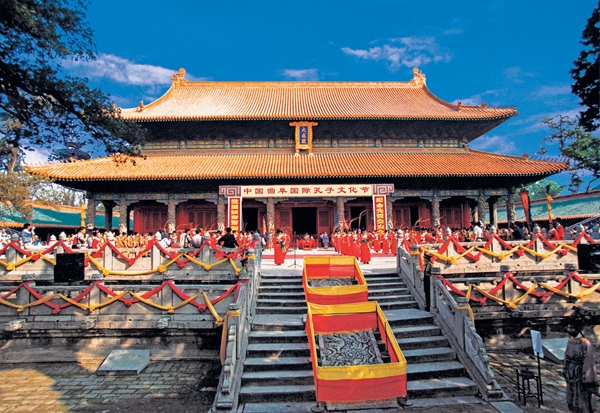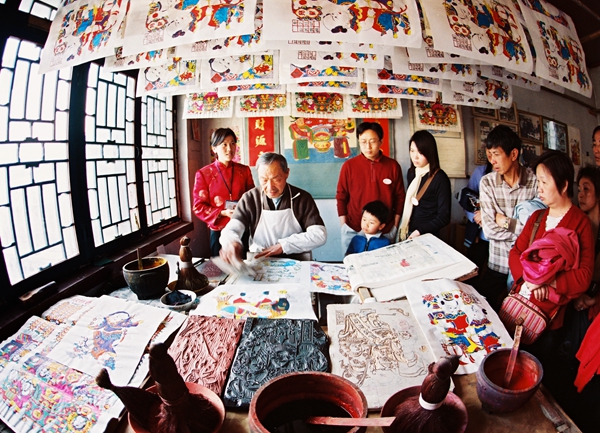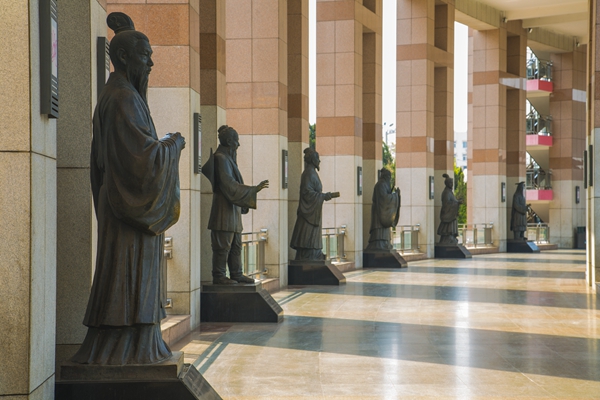Culture of Shandong
(chinadaily.com.cn)| Updated : 2023-01-04
Print Print
[Photo provided to chinadaily.com.cn]
Shandong is an important cradle of Chinese civilization, and nurtured a galaxy of preeminent thinkers, statesmen, litterateurs and inventors during the Spring and Autumn Period (770-476 BC) and the Warring States Period (475-221 BC), building the great and profound Qilu culture.
Confucius, China's greatest thinker and educator, established Confucianism, which has exerted a widespread and far-reaching influence on Chinese civilization and acted as an integral part of Chinese traditional culture.

[Photo provided to chinadaily.com.cn]
Many sages in ancient China such as Confucius, Mencius, Micius, Guan Zhong, Sun-Tzu, Bianque, Zhuge Liang, Lu Ban, Jia Sixie, Liu Xie, Wang Xizhi, Li Qingzhao, Kong Shangren, Pu Songling accomplished much in the fields of ideology, philosophy, politics, military, literature, art, science and technology, and medicine, remarkably enriching Chinese culture and leaving a variety of precious cultural legacy.
In modern times, Shandong people were devoted to Chinese national and democratic revolution, thus fostering the distinctive and valuable red culture. Yimeng spirit, developed in revolutionary wars, is an integral part of the remarkable spirit of the Chinese nation.
In recent years, Shandong has been playing an active role in inheriting and animating colorful Qilu culture, promoting cultural innovation and developing cultural undertakings and industries. Shandong has been stepping up efforts to enhance the grass-roots public cultural service, establishing a public cultural network where cities are equipped with libraries, art galleries and museums, counties are provided with libraries and cultural centers, towns have cultural stations, and villages and communities have cultural activity rooms or culture yards.

[Photo provided to chinadaily.com.cn]
